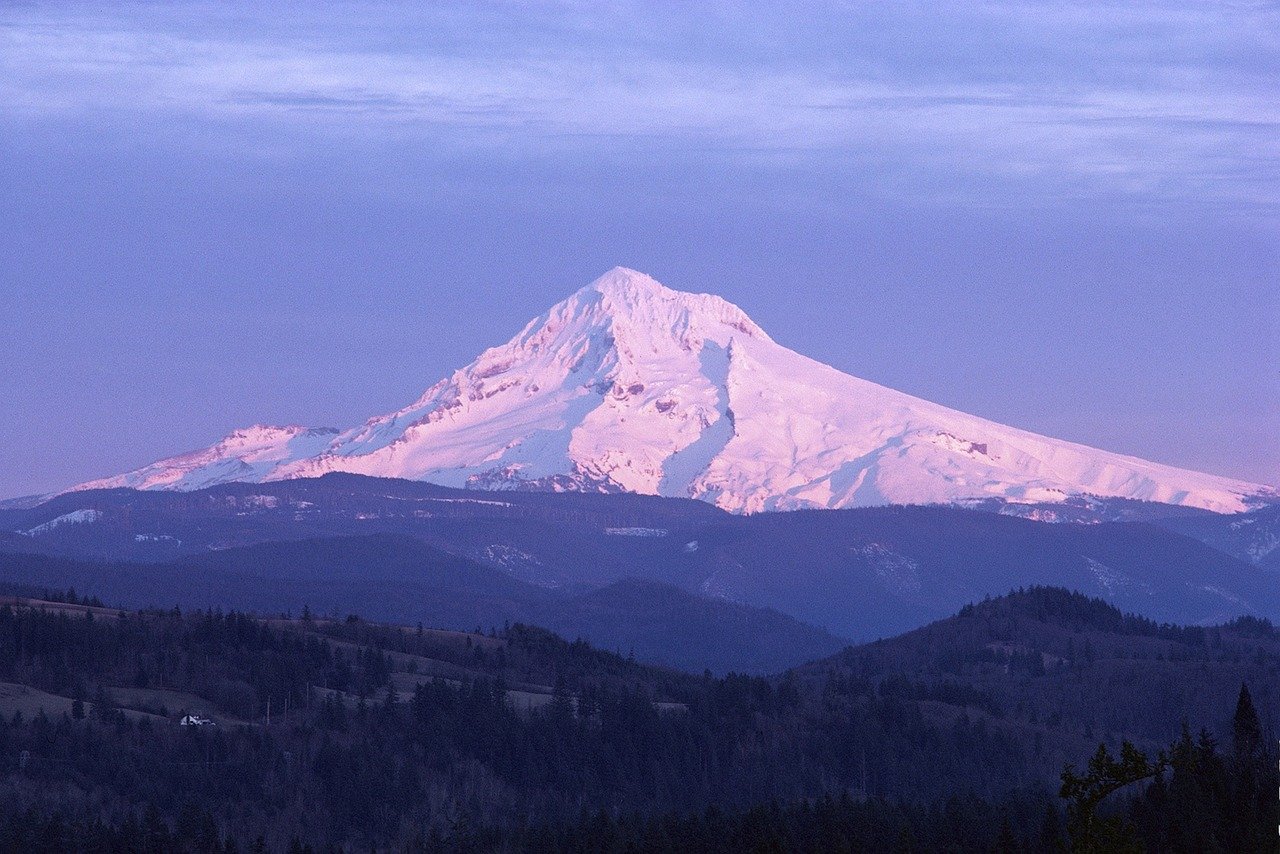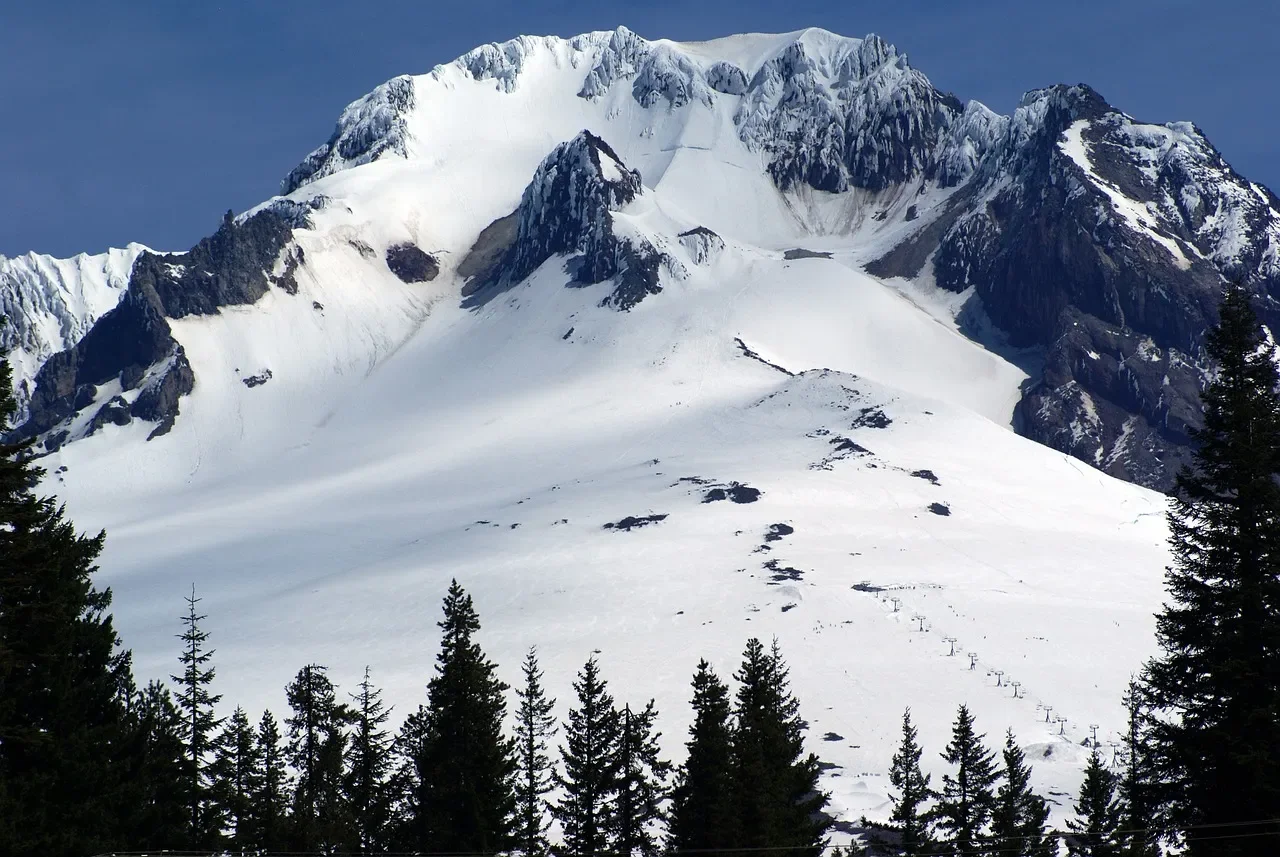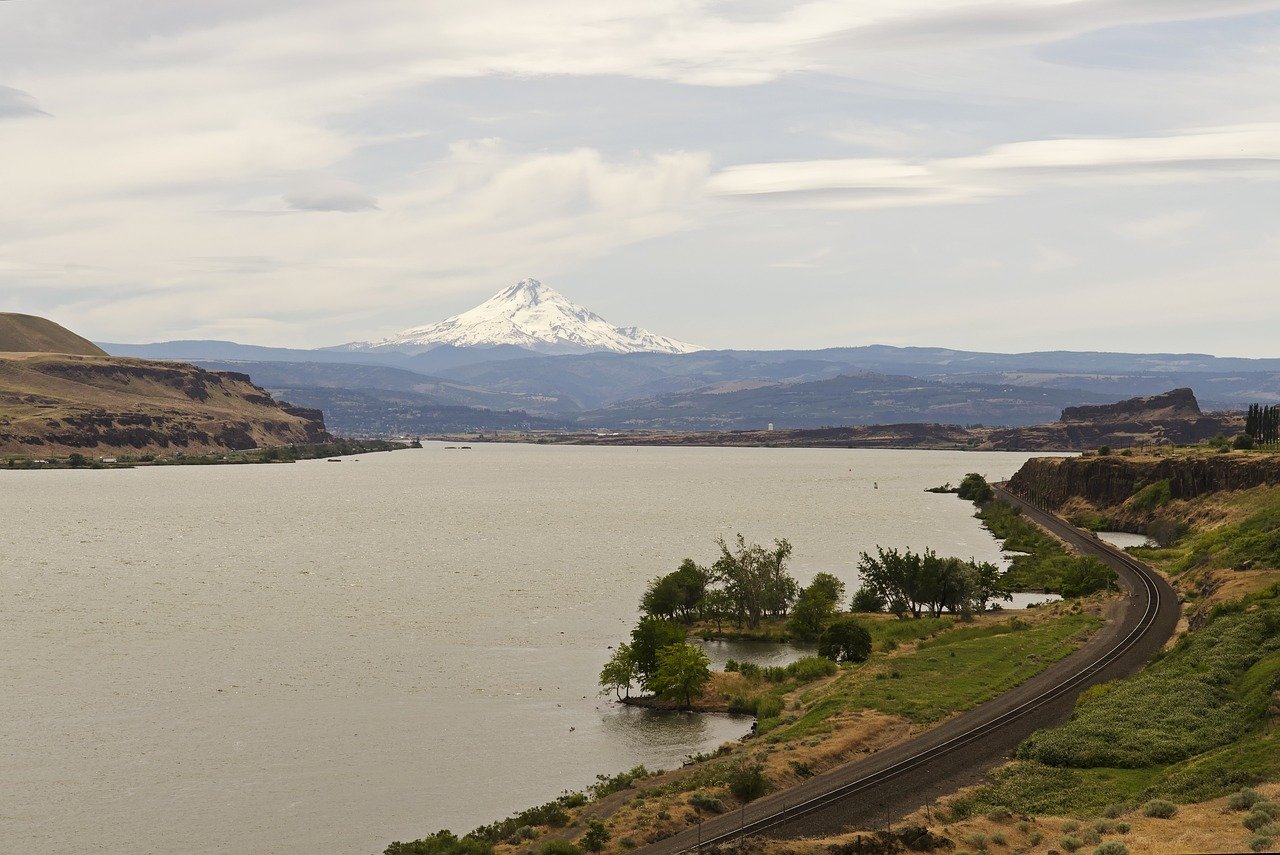Mount Hood, located in Oregon, is the state’s tallest mountain, standing at over 11,000 feet. It’s known for being one of the snowiest places in the Pacific Northwest. The mountain itself is home to one of the longest ski seasons in North America, with snow sticking around well into the summer. While snow is expected when it comes to Mount Hood and the surrounding small towns of Government Camp and Sandy, what isn’t expected is a blizzard.
Last week, on January 9 and 10, 2024, Mount Hood experienced its first true blizzard since 2012. The blizzard brought multiple feet of snow accumulating in the area, coupled with winds exceeding 50 miles per hour. Even for a community prepared for large volumes of snow throughout a standard winter season, an accumulation of 3-5 feet in just two days can have some larger effects than an expected snowstorm.

Image by User 12019 via Pixabay
For perspective, the average annual snowfall on the mountain as a whole is approximately 34 feet. The snow season on Mount Hood generally starts in October, and there have been snowfall days as late in the year as early summer. Receiving 3-5 feet of snow in just 24 hours is record breaking.
This storm brought snow as low as 1,400 feet. This caused driving conditions to be dangerous for people living and working in surrounding areas, with snowfall and extreme cold even at low elevations, coupled with whiteouts in some areas. This storm also affected the surrounding landscape and cities, including the nearby, windy Columbia River Gorge, which brought the snowfall to the city of Portland.

Photo by Harry Wegley
Will Heavy Snowfall Save the Melting Glaciers?
However, this amount of snow isn’t a bad thing. Mount Hood itself is home to 12 different glaciers and permanent snowfields, which have been gradually melting out over the years. The mountain needs the snow, and high volumes of it, for this beautiful ancient ice to stick around. In order for glaciers and snowfields to grow, there needs to be more snow in the winter than there is snowmelt in the warmer months.
While this heavy amount of snow isn’t a guaranteed save for our melting glaciers, it does bring some hope that the ones that are melting more rapidly—like Palmer—might stick around for another year, especially if the mountain continues to get high volumes of snow throughout the rest of the winter season.

Photo by Jim Black
Is It Safe to Visit Mount Hood Right Now?
So, is it safe to visit Mount Hood right now? Yes, and people are visiting in large numbers. Despite rough conditions during the blizzard itself, this incredibly rare storm has brought some of the best snow in years to the local ski resorts, including Timberline Lodge, Mount Hood Meadows, and Mount Hood Skibowl, which all opened multiple lifts after the storm last week. These resort openings and high levels of fresh snow have caused skiers and snowboarders to flock to the mountain to experience this incredible phenomenon. This is quite the change for these resorts, who have been suffering in recent years due to late winters and low snowfall. Timberline Lodge, which hosts one of the longest ski seasons in the country received over 5 feet of snow in just 24 hours.
If you are going, just be sure to bring your tire chains up with you—you never know what weather you’ll experience on the mountain.
After years of late-season snow and over a decade without a storm like this, Mount Hood is covered in multiple feet of snow once again, breaking records as the mountain’s first true blizzard in over 10 years, and with largely unpredictable weather patterns throughout the country this winter, it’s hard to tell what the rest of the season might bring to the cascades of the Pacific Northwest.
The post Mount Hood Is Having Its First Blizzard in a Decade: Here’s What You Need to Know appeared first on Outdoors with Bear Grylls.
https://outdoors.com/mount-hood-is-experiencing-its-first-blizzard-in-decades/
 CampingSurvivalistHuntingFishingExploringHikingPrivacy PolicyTerms And Conditions
CampingSurvivalistHuntingFishingExploringHikingPrivacy PolicyTerms And Conditions
